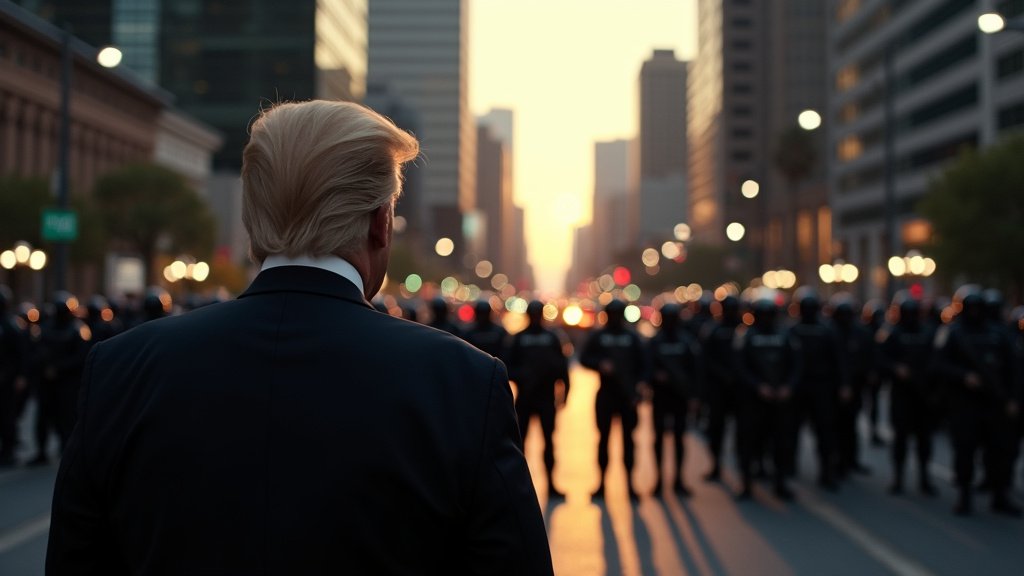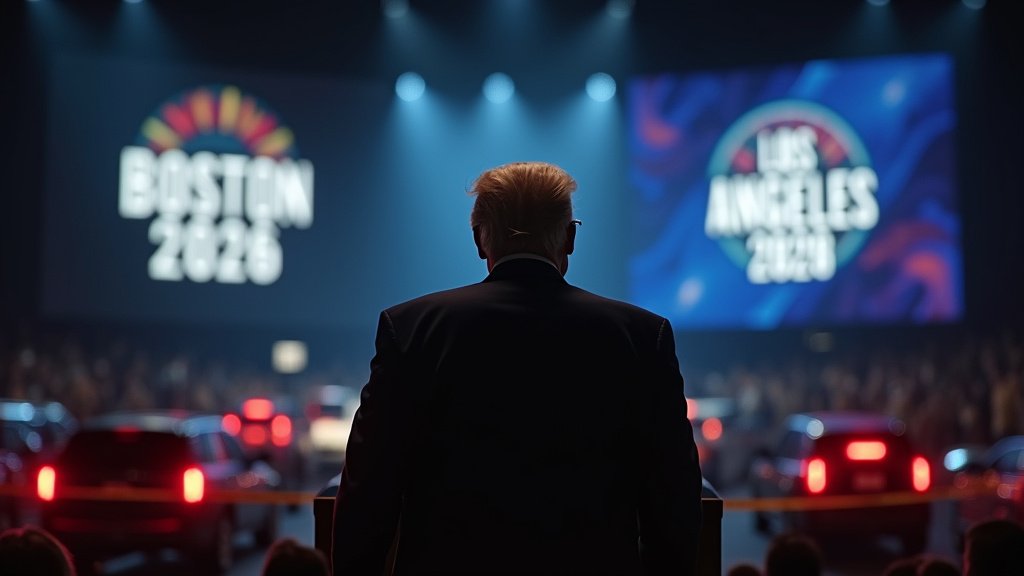The Trump administration is actively escalating its display of federal power within major American cities, particularly in urban centers like Los Angeles and Washington D.C., a move that is rapidly raising widespread concerns among officials, civil liberties advocates, and the public. These actions represent a significant shift, viewed by many as an unprecedented assertion of federal authority in areas traditionally policed by local agencies.
A Bold Assertion of Federal Might
Recent events highlight a discernible pattern of increased federal intervention, particularly notable for its overt nature and perceived aggression. This strategic reorientation of federal resources and personnel into urban areas marks a distinct departure from historical norms. The administration’s rationale for these escalated deployments is often framed as a direct response to crime, a justification that seeks to underscore the necessity of a strong, centralized federal presence to maintain law and order. However, critics argue that the actual impact goes far beyond simple crime prevention, venturing into the realm of testing the very boundaries of presidential and federal power within domestic spheres.
The Los Angeles Flashpoint
A pivotal example of this burgeoning federal footprint occurred in downtown Los Angeles, where a prominent Border Patrol immigration raid unfolded. This operation, carried out by agents typically associated with border security, deep within an urban core, sent clear signals about the administration’s willingness to deploy federal resources in unexpected ways. The raid in los angeles became a major news story, sparking intense debate about the role and scope of agencies like Border Patrol, particularly when operating far from traditional border zones. Such actions, while justified by the administration as necessary measures to enforce immigration laws and combat criminality, are seen by others as provocative and potentially overreaching.
Shifting Norms and Public Discussion
The actions in Los Angeles, along with similar displays of force in Washington D.C., are contributing to a current and trending public discussion about the separation of powers and the delicate balance between federal and local governance. This isn’t just a legal debate; it’s a deeply felt civic conversation about the nature of American liberty and the limits of executive authority. The visible presence of federal agents in cities, performing duties that sometimes overlap with or supersede local law enforcement, generates a palpable sense of unease. For many, this represents a dangerous precedent, potentially paving the way for a more centralized and less accountable federal presence in everyday life.
Trump’s administration frequently frames these operations as essential for national security and public safety, arguing that local authorities are either unwilling or unable to adequately address certain issues, particularly those related to crime and immigration. This narrative, however, clashes with the perception of many urban residents and leaders who view these interventions as an affront to local autonomy and an unnecessary escalation of tensions. The prominent display of federal power, often involving agents in tactical gear, has become a potent symbol in the ongoing political polarization, stirring both fervent support and strong condemnation across the nation.
The Uncharted Territory of Federal Reach
The consistent and increasingly visible deployment of federal assets into these urban areas suggests a deliberate strategy to demonstrate federal supremacy. These operations are not merely isolated incidents but appear to be part of a broader campaign aimed at redefining the parameters of federal engagement within domestic jurisdictions. By asserting this authority in cities like Los Angeles and Washington D.C., the administration is venturing into uncharted legal and political territory, pushing the established norms of federal-state relations to their breaking point. The significant public discussion generated by these actions underscores the profound implications for civil liberties, local governance, and the future of federal power in America. The questions raised by these aggressive tactics are not easily answered and will continue to shape the national discourse for the foreseeable future.





